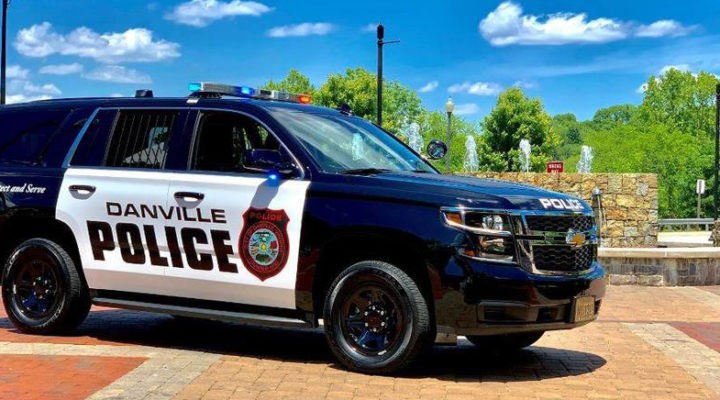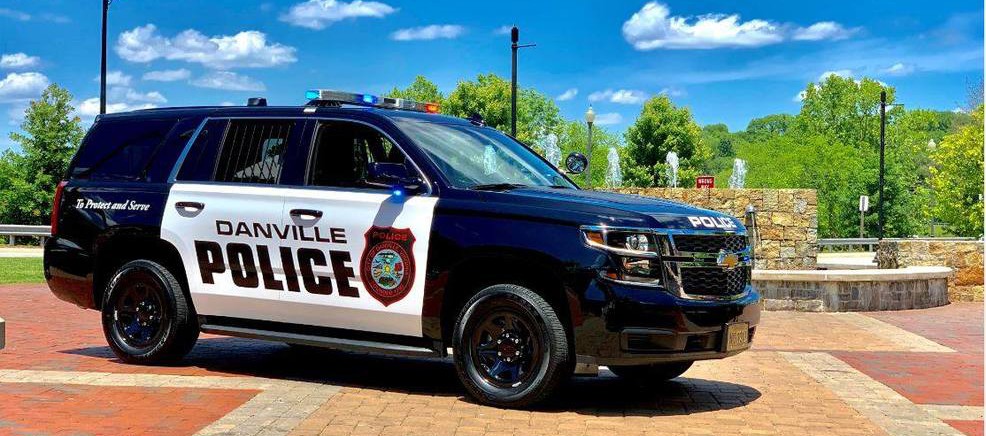The Danville, Va., Police Department’s new community immersion program connects rookie officers with leaders, including pastors, and residents in the city’s most diverse and economically challenged neighborhoods.
Baptist pastor Joshua Hearne helped design the course, and the experience was a chance to apply asset-based community development principles to the thorny challenges of policing, poverty and race in the George Floyd era.
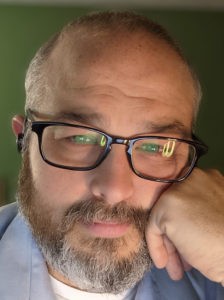
Joshua Hearne
“The heart of this is building relationships, because relationships are the foundation from which change is made,” said Hearne, co-leader of Grace and Main, an intentional Christian community he founded in Danville with his wife, Cooperative Baptist field personnel Jessica Hearne.
The idea of asset-based community development, Hearne said, is to empower residents to uncover and develop the assets inherent, and often overlooked, in their communities. The new program he and five other community and grassroots leaders developed for police uses the same approach to train newly minted officers to see the positives in the neighborhoods they will be patrolling.
“We’re hoping officers will not tell deficit-based stories but will change the way they think about the neighborhoods and people they see in those neighborhoods,” he said.
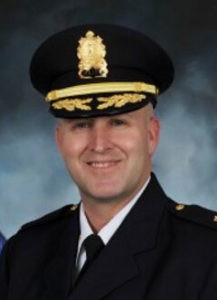
Scott Booth
The Community Based Leadership and Immersion Program began in 2020 as the brainchild of Danville Police Chief Scott Booth, who approached Hearne about developing the concept soon after Floyd’s murder in May that year.
Hearne and fellow community leaders gathered at Loyal Baptist Church in Danville where they drew up plans for a four-week course that now has had two sessions, including one that concluded last month.
The curriculum introduces new officers to Danville’s civil rights history and to members of communities marginalized around race, gender and sexual identity and income.
“This program gives us the opportunity to work with the police as partners rather than as adversaries,” said program co-designer Ebony Guy, a community activist and board member of Virginia Organizing, which promotes grassroots activism around the state. “And the officers get to meet people who are already working in the community to make it better.”
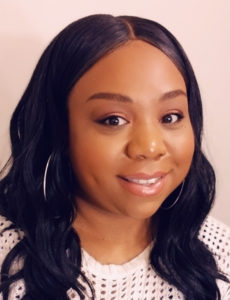
Ebony Guy
The course also exposes officers to the deeper, systemic issues that often bring police to at-risk areas in the first place, Guy said. “It’s about food insecurity, domestic violence, suicide awareness and prevention and mental health support systems. A better understanding of these issues and support systems can help law enforcement de-escalate many situations.”
Familiarizing officers with the needs and assets of communities inspired the requirement that each class develop a service project. The first cycle provided Thanksgiving dinners to residents of a housing complex, while the second established a system of school resource stations providing students with toiletries, shoes, clothing and other items.
“We’re not asking cops to become grief counselors, but if they can remember from these early weeks of training what the needs and resources are in our communities, that’s a process that protects officers, the communities and the residents,” Guy said. “I’m looking for protection for people who might be disregarded or seen as ‘other.’”
The law enforcement aims parallel those of the designers of the program.
“From a policing perspective, it boils down to recognizing the needs of our community and it gives officers an opportunity to hear from community members,” said Danville Police Capt. Richard Chivvis. “Police work is all about problem solving and community service.”
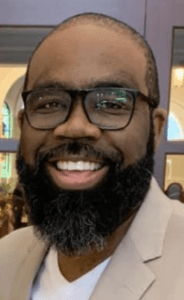
Emmett Smith III
Learning that Danville’s police chief was seeking grassroots input into community policing after the Floyd murder was powerful, said Emmett S. Young III, pastor at Loyal Baptist Church and one of the designers of the immersion program. “It looked like the police department was trying to get ahead of incidents like this, which was definitely welcomed.”
But involvement in the program has turned out to be even more inspiring, he said. “Watching that horror and having a 10-year-old son at the time who didn’t understand, and trying to talk to him, I felt very helpless. So, when this program came about, I thanked God for Chief Booth and for having something tangible and visible to take part in.”
The effect has been similar for many others in the community, including those who have met or just seen the officers in training. “It certainly helps because community people want to be part of this and they want the visibility of police and they want to see who is on the police force,” Young said.
“Traditional police training often tends to teach people to think in deficit-based ways about what’s broken and what’s failing.”
Hearne said the relationships established between officers, residents and leaders will have untold benefits. “This is an opportunity to be a peacemaker. Oftentimes we think of peacemaking as something that is reactive after a conflict, but it’s easier and more effective to make peace prior to conflict.”
The solutions to conflict already exist in communities if leaders, residents and police take the time to see them, he said, explaining this is an approach he learned from the late Melissa Browning at Mercer University’s McAfee School of Theology.
“As my doctoral advisor, she challenged me not to see asset-based community development as a technique, but as an approach to the work and ministry. One of the things I learned was how to build meaningful relationships and to sustain relationships over the long term.”
So, it wasn’t too much of a stretch to apply that approach to community policing, Hearne said.
“Traditional police training often tends to teach people to think in deficit-based ways about what’s broken and what’s failing. Now they are learning asset-based ways of thinking and in that reality, you can do anything.”

